This article appears for archival purposes. Any events, programs and/or initiatives mentioned may no longer be applicable.
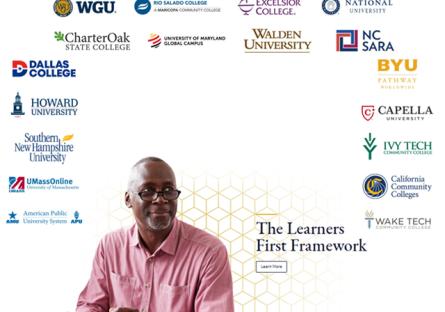
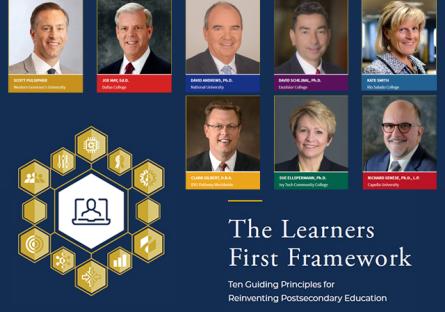
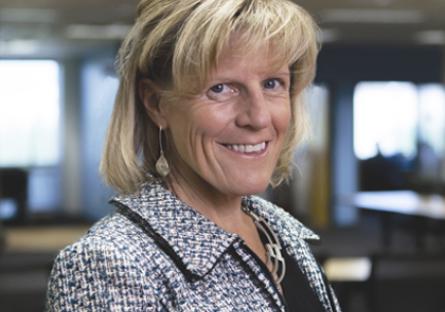
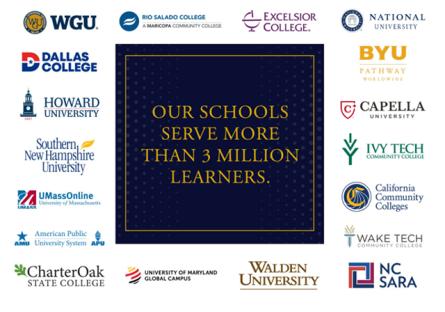

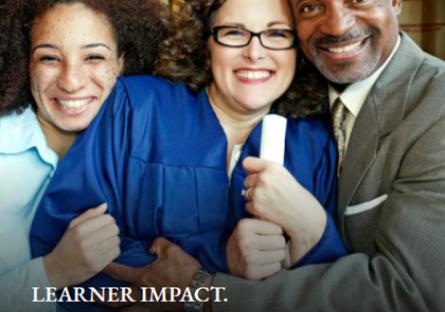
Rio Salado College Joins Presidents Forum to Reform Higher Ed and Resolve U.S. Crises
President Smith Serves as Governing Board Member to Lead Learners First Framework Initiative
To help higher education meet the demands of a diverse generation of students, an ever-changing workforce and multiple crises affecting the U.S., Rio Salado College is partnering with the Presidents Forum on a new call to action, the Learners First Framework. The framework names ten guiding principles for reform focusing on equity, access and workforce alignment strategies to help the country as it grapples with equitable access and outcomes, COVID-19 and related economic hardships.
“The events of this past year have brought a heightened sense of urgency to our mission to serve non-traditional, underserved, and vulnerable learners, and to provide the flexibility and support to give students resilience during this challenging time,” said Scott Pulsipher, president of Western Governors University and chairman of the board of the Presidents Forum. “Building that resilience requires institutions to design around the needs of students, and to equip learners with the skills which are essential for workplace success. The Learners First principles offer a roadmap to a more sustainable and relevant future for higher education.
The Presidents Forum, which is a national nonprofit network founded in 2002 comprising 17 colleges, unveiled its ambitious new framework for retooling higher education on Nov. 20, 2020.
Interim President Kate Smith is serving as a Governing Board member, leading the college’s efforts to develop and implement Learners First reforms. She served as chair for the second virtual convening of presidents on Wed., Jan. 27.
“Like many Americans, students across the country are struggling with hunger, evictions, unemployment, mental health issues, societal divisions, racial injustice, issues of inequity and more— all at once,” said President Smith. “This calls for collaborative and definitive action from higher learning institutions to rethink how we meet the needs of learners.”
“Our college was founded in 1978 to make education affordable and accessible to anyone with a passion for learning— with a special emphasis on serving students who may not have the resources and support systems to pursue an education. This mission led to our work as a pioneer and leader in online learning, partnerships with industry to create training programs for employees, our incarcerated re-entry program, hunger relief program and many other innovative programs to support the communities we serve. We are honored to step up our efforts, share expertise and collaborate with the Presidents Forum, higher education institutions, students, and employers as we move forward by creating new opportunities.”
Rooted in the experiences of some of the nation’s largest online universities, community and technical colleges, minority serving institutions, and state higher education entities, the framework calls on institutions to undergo a culture shift to better understand and meet the diverse objectives of today’s learners and create equitable pathways to economic opportunity. The organization’s member institutions issued the recommendations in response to longstanding issues facing higher education exacerbated by the pandemic, such as the disconnect between education and work.
Recent survey data indicates the majority of Americans pursue postsecondary education to improve their career prospects. At the start of 2020, four in ten recent college graduates were underemployed, with Black and female graduates disproportionately impacted. Meanwhile, colleges and universities have struggled to keep up with learner demographics that have continually shifted away from the profile of the traditional college student. Currently, 37% of learners are older than 25, 24% are parents, and 64% work full- or part-time. Enrollments have also become more diverse, but gaps in achievement and economic mobility persist.
“We can no longer be content with simply acknowledging changes in student demographics. A new generation of students has arrived, and institutions are facing a reckoning on our ability to meet their needs in an increasingly complex society and economy,” said Eloy Ortiz Oakley, chancellor of the California Community Colleges. “Higher education faces an imperative not just to recover from the health, economic, and educational effects of the pandemic, but also to break with the challenges of the past, break down the vestiges of systemic racism, and create a future where we can better address higher education access, equity, and workforce outcomes.”
The framework is the product of a virtual event last fall that launched the Learners First Convening series, a set of collaborative events with Presidents Forum members, policy experts, employers, and innovators focused on rebuilding higher education in the aftermath of the pandemic. Over the next 15 months, the series will surface insights and best practices from Presidents Forum members and produce resources and tools for peer institutions.
Founded by a small group of forward-thinking university and community college leaders who were early adopters of online learning and serving working learners, the Presidents Forum advances innovation in policies and practices to ensure the promise of higher education for working learners and other growing demographics.
“Many of the emerging practices and technologies—once thought to be outliers but increasingly embraced by institutions that serve working learners—represent an essential part of our strategy for navigating this period of enormous change,” said Jim Manning, executive director of the Presidents Forum. “This work is about marshalling the insights of institutional leaders who are leapfrogging conventional wisdom and putting learners first in policy, practice, and governance.”